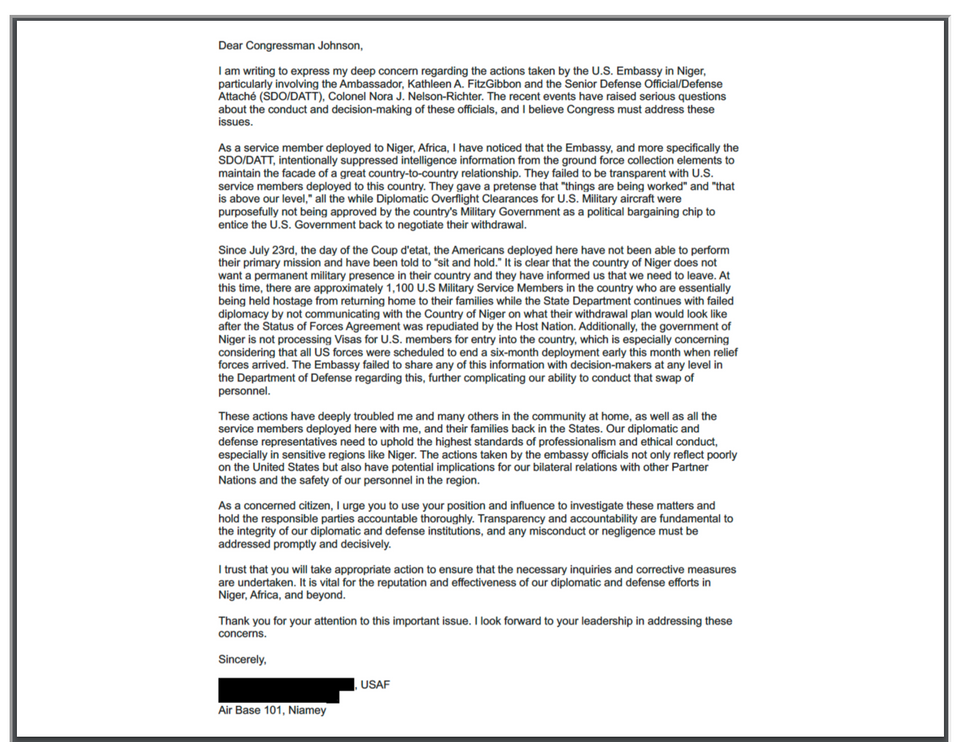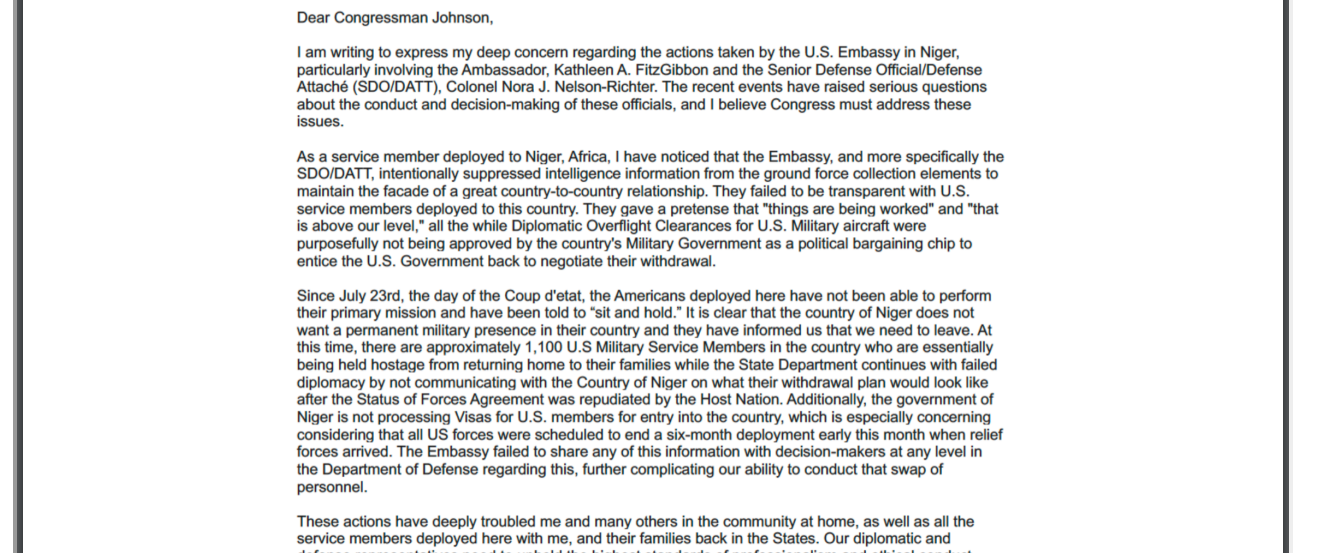Conditions have been getting so bad for the approximately 1,100 U.S. military personnel stationed in Niger right now that one member of the Air Force decided to write Congress.
In a letter reported by the Washington Post Wednesday night, a whistleblower complained to Congress that the U.S. Embassy in Niger, particularly Ambassador Kathleen FitzGibbon and Air Force Col. Nora J. Nelson-Richter, the defense attaché posted there, was putting troops at risk by ignoring the military junta's March demands that the military leave and insisting that a diplomatic resolution was "being worked."
The junta overthrew the president Mohamed Bazoum in July 2023 in a coup and by all accounts is still holding him and his family in the basement of the presidential palace. After a reportedly disastrous meeting between U.S. officials and Niger last month, the junta said it wanted the U.S. military footprint gone from Niger, drone base and all. Since that base is so important to the military, especially at a time when things in the Middle East are rupturing and Great and Middle Power Politics is swirling around the Sahel and North African region, Washington is doing whatever to takes to stay put.
This includes putting the troops there at risk, says the whistleblower, who claims the embassy's actions, which included suppressing intelligence to maintain the facade that diplomatic efforts were progressing, have “potential implications” for U.S. relations with other African nations “and the safety of our personnel in the region.” Importantly, the whistleblower said the junta was not approving any more visas for U.S. military members, which would include replacements for those who were supposed to go home in April after a six month mission. The full letter, published last night:

Both the State Department and Defense Department have rejected the whistleblower's claims, but the their charges are sure to inflame those on Capitol Hill who have been calling for a withdrawal of the U.S. military presence all along.
“We have Army soldiers right now in Niger who aren’t getting their troop rotations, who aren’t getting their medicine, who aren’t getting their supplies, who aren’t getting their mail and the two senior people in the United States Army are sitting before me and it’s like ‘hear no evil, see no evil, speak no evil,’” Rep.Matt Gaetz (R-Fla,) said in a hearing with U.S. Army officers on Tuesday. He said he has talked to a half a dozen service members directly about the conditions there right now.
The whistleblower complaints were reported the same day U.S. officials were meeting with the Nigerien prime minister, with follow-on discussions expected next week on the status of U.S.-Niger relations — talks that the Washington Post says "have appeared to make little headway.














